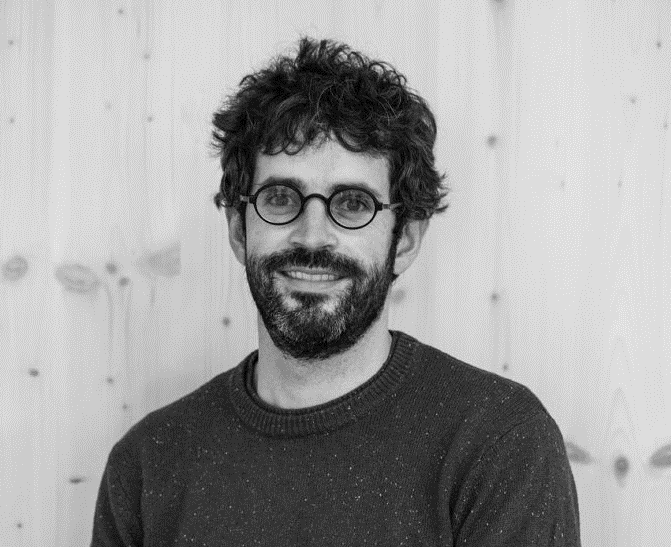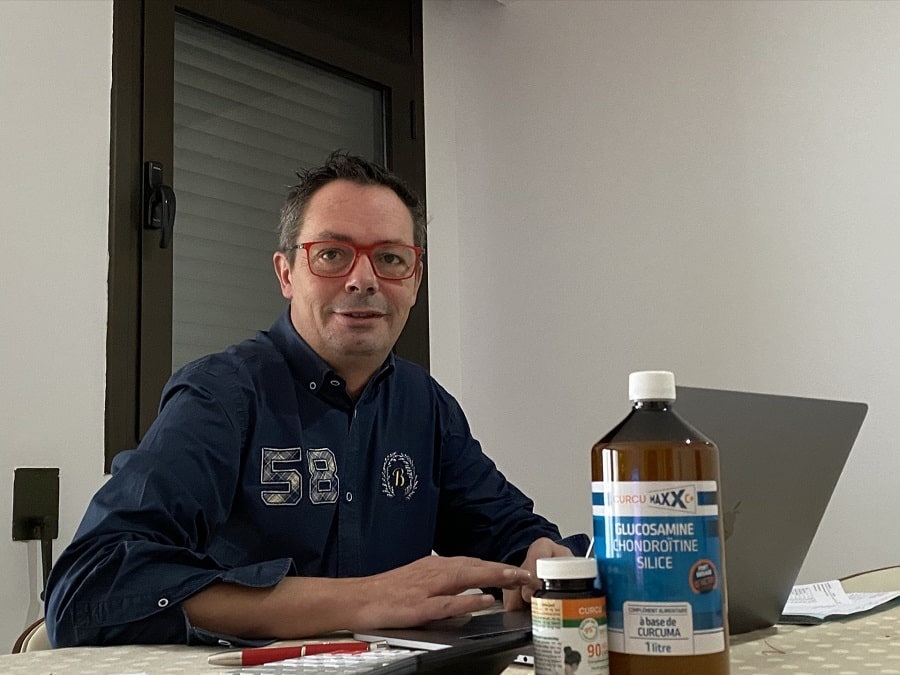Minister of internal affairs of Andorra (Pyrenees) Xavier Espot Zamora told all-andorra.com about the results of 2015 and plans of the Ministry for the future:
Interview : Irina Rybalchenko
What are the trends in the applications made for residence permits (active and passive) after the adoption of the new law on investments in 2012?
The number of residence permits has increased considerably, especially for the category “passive residents”. Since 2012 we have issued 467 residence permits for “passive residence”. Among them there are 17 professionals with international recognition, as well as 37 famous artists, sportsmen and scientists accredited internationally.
Passive residences became more sought after. If we compare the period “July of 2014 – July of 2015” and the period “July of 2015 – July of 2016” (we are talking about principal applicants, not about all families members), the growth of passive residents permits was almost 30%. During this period of time we issued 187 residence permits to applicants from countries such as: Spain (54 permits), France (28 permits), Russia (21 permits), UK (16 permits), Belgium (6 permits), Germany (6 permits), Netherlands (6 permits), Australia (5 permits), Italy (4 permits), Canada (4 permits), Greece (3 permits), Finland (3 permits), Poland (3 permits), Portugal (3 permits), Sweden (3 permits), Ukraine (3 permits), Belarus (2 permits), Ireland (2 permits), China (2 permits), Norway (2 permits), Argentina (1 permit), Colombia (1 permit), Costa Rica (1 permit), Denmark (1 permit), USA (1 permit), Israel (1 permit), Jordan (1 permit), Kyrgyzstan (1 permit), Malta (1 permit), Lithuania (1 permit), Switzerland (1 permit) and Venezuela (1 permit).
Could you name those 37 famous people who recently got a residence permit in Andorra?
There are very few people who made this information public – Carmen Thyssen, Mark van der Loo, and Marc Marquez would be three of those. So I have to withhold comments about others for confidentiality reasons.
What was the total number of residence permits that were unable to be issued?
The total number of refusals (passive and active residence permits) in 2015 was 186.
Why were those people refused?
Most of them didn’t pass the compliance procedures required under the immigration law. One of the requirements is a criminal record and this is the main reason we have for making refusals. Another reason is the lack of a resident’s family reunification (when an applicant doesn’t have enough profit to support his family).
Can the absence of documents be a reason for a refusal?
It can be, even though we always give applicants the possibility to bring any missing documents in a reasonable time limit.
Is there a “black list” of countries for which you refuse citizens automatically?
No. Every case is individual and directly depends on the person rather than his or her nationality.
How many residents without citizenship do currently (early 2016) live in Andorra and which categories do they fall under?
Actually in Andorra there are 43961 residents classified in the following categories: “Residence family reunification” – 4507 residents, “Temporary for studies or research” – 83 residents, “Temporary training” – 9 residents, “Temporary sports training” – 37 residents, “Residence and working” – 31998 residents, “Residence and working self-employment” – 582 residents, “Temporary” – 3220 residents, “Temporary workers of foreign companies” – 164 residents, “Residence and working teaching staff” – 364 residents, “Residence families teaching staff” – 192 residents, “Residence without working” – 2780 residents.
Does Andorra have any plans to restrict its terms on getting Andorran citizenship? If yes, for which category and for how many years? Do you think that the current situation corresponds with European standards in general?
The Andorran government doesn’t have any immediate plans to restrict these terms. The requirements correspond with standards applied in other small states in Europe such as San Marino, Monaco and Lichtenstein and, in some situations, are actually more lenient.
As far as I know, in neighbouring France, for example, the term is only 5 years, but in Andorra it’s 20 years…
Yes, that is true. But I was talking about small countries. Anyway, the rule is different, for example, for those who get married to an Andorran citizen – in that case the term is only 3 years. The rules for children who go to school in Andorra are also different. For example, if a child goes to school in Andorra for 10 years (from 6 until 16 years old) they can get an Andorran passport when they finish school.
If a person came to Andorra as a passive resident, but changed their residency, for example, after 3 years, would they need to wait for another 17 years or would these 3 years be lost?
It doesn’t matter if a person changes his residency or not. Everything depends on the conditions – a person has to live in Andorra permanently, not only for 90 days (which is the situation for passive residents). If a person can prove they have been living in Andorra permanently, those 3 years won’t be lost.
Last year a draft of a bill which reduced the terms of obtaining an Andorran citizenship was introduced in Parliament once again. Why was it not supported by the ruling party?
Yes, you are talking about the Social-Democratic party’s initiative. The proposal was to reduce the terms from 20 to 10 years. A draft of this bill has been discussed twice, but was not supported by the Andorran parliament.
Currently, the Andorran government is involved in negotiations on an association agreement with the European Union concerning free movement of goods, services, capital and people and we would like to obtain a possibility to access the EU market for Andorran students, workers and entrepreneurs. We are convinced that a discussion on changing the terms of getting Andorran citizenship will depend on the results of these negotiations.
What is your personal position: is it necessary to give a voice to people who invest in Andorra’s economy?
The Andorran government does all that it can to enable people to become Andorran citizens. A discussion about reducing the time to obtain citizenship is only one part of our discussion. A bigger question concerns general integration. So we have to finish our negotiations to make the right decision. Anyway, in 2013 we made an important modification to the immigration law. It allowed people to obtain a residence through company formation, and since the 2012 Law on investments, residents obtain from the first day all economic rights.
Do you think the negotiations will be finalized by 2018?
It’s difficult to say at this time.
Has there been an increase or a decrease in crimes over the last 10 years? What are the current trends?
Since 2011 until 2014 (the last government’s term) the number of crimes has decreased by 20%. In particular, crimes against property have decreased by 29%. From 2014 to 2015 (the first year of this term) the number of crimes decreased again by 5.5%. According to these statistics I am proud to say that Andorra is one of the safest countries in the world.
What kinds of crimes do take place more often?
The consumption of prohibited drugs, and shoplifting.
What are the statistics for serious crimes?
There were very few serious crimes in our country. During 2014 and 2015 there were only 2 homicides and 2 rapes.
What kind of penalties does the Andorran criminal code impose for serious crimes?
We don’t have life imprisonment, as we follow all the recommendations from the Council of the Europe. According to the Andorran Penal code, the maximum penalty is 25 years imprisonment, which is solely imposed for murder with aggravating circumstances.
Is Andorra considering the possibility of legalizing “light” drugs taking into account world trends in the USA and some European countries?
The importation of drugs is strongly prohibited in Andorra. Strict controls on drug trafficking takes place along the borders of Andorra. In contrast with some other European countries, including neighbouring Spain, smoking marihuana on Andorran territory is not allowed and punished by the Criminal code. Obviously, selling of any kind of drugs, including “light ones”, could be punishable by a prison sentence. The consumption is normally not, but it depends on the reiteration and the type of drug involved.
What are the statistics on crimes which were committed by residents, tourists and the local population?
We don’t have exact statistics showing all these categories separately.
What is the budget given to the Andorran police? How big is it relative to the GDP?
The total budget is about 15 million euros, which is 3.75% of GDP.
What is the number of employees working for the police and services of the Ministry of internal affairs?
More than 200 people work for the police, another 70 people work for services related to the police. It’s less than 0.5% of the total population.
Are any radical reforms scheduled to take place regarding the structure of the Ministry of internal affairs? What kind of new bills are going to be discussed by the Parliament?
We have currently been working on several bills. For example, The Civil procedure code which will enhance juridical security in civil procedures. We are also working on modifications and improvements to laws related to the status and working conditions of the police force and the penitentiary agents, a new Law on Fireman, a Law on Civil Protection and the signature and ratification of the Hague Conventions on Civil Procedure and the Convention of Lugano on jurisdiction and enforcement of judgements in civil and commercial matters.
What is the average salary of those working for the Andorran police service?
It’s about 2000 euros per month.
Does the penitentiary system of Andorra correspond to European standards? What are the differences?
Yes, it corresponds to all the European standards. We have implemented almost all recommendations given by the Torture Prevention Committee of the Council of Europe .
How many prisoners are there in the Andorran prison at the moment?
At the moment there are 43 prisoners: 35 men and 8 women. No minors are incarcerated. We provide the prisoners with good medical care, education, cultural and recreational activities, an employment within the prison system, and social security. The prisoners also have access to a psychologist.
Are there any countries with which Andorra doesn’t have agreements regarding the extradition of criminals?
Andorra has not signed any bilateral agreements on extradition, as we have signed and ratified the European convention on extradition. It is a big multilateral agreement with 90 countries all over the world.
This year the people of Andorra began paying income tax for the first time in the country’s history. Is there any criminal liability for tax avoidance?
During the last 4 years we made some big reforms to our tax system. Now our tax system is adapted to European standards with direct and indirect taxes. The Andorran government is currently working on introducing penalties for tax avoidance. Anyway, it’s our goal for 2016.











